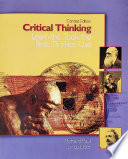

Critical thinking is the ability to analyze information, evaluate evidence, and make reasoned judgments. It involves questioning assumptions, identifying biases, and considering alternative viewpoints. This foundational skill is essential for navigating complex information landscapes and making informed decisions. By understanding the principles of critical thinking, individuals can enhance their problem-solving abilities and improve their capacity to engage in reasoned discourse.
Continue readingOne of the core tenets of critical thinking is the practice of questioning. This goes beyond surface-level inquiries and delves into the motivations, sources, and implications of information. By fostering a habit of questioning, individuals can uncover deeper truths and avoid being misled by misinformation. Effective questioning can lead to greater clarity and understanding, enabling individuals to make better decisions based on a comprehensive analysis of the situation.
Continue readingCognitive biases are systematic patterns of deviation from norm or rationality in judgment. They can significantly impact our decision-making processes. Critical thinking involves recognizing these biases, such as confirmation bias, anchoring, and overconfidence. By becoming aware of these biases, individuals can mitigate their effects and approach problems with a more objective mindset. This awareness is crucial for making sound judgments and avoiding pitfalls in reasoning.
Continue readingIn the age of information overload, not all sources are created equal. Critical thinking emphasizes the importance of evaluating the credibility and reliability of information sources. This includes assessing the author's qualifications, the publication's reputation, and the evidence provided. By developing the ability to discern trustworthy information, individuals can navigate the complexities of modern media and make informed decisions based on accurate data.
Continue readingLogic and reasoning are vital components of critical thinking. The ability to construct coherent arguments and identify logical fallacies is essential for effective communication and persuasion. Critical thinking encourages individuals to use structured reasoning to analyze problems, draw conclusions, and support their claims. By honing these skills, individuals can engage in more productive discussions and contribute to collaborative problem-solving efforts.
Continue readingCritical thinking is not just an academic exercise; it has practical applications in everyday life. From making personal decisions to engaging in community discussions, the principles of critical thinking can enhance one's ability to navigate various situations. This idea emphasizes the importance of integrating critical thinking into daily routines, fostering a mindset that values inquiry, reflection, and informed decision-making.
Continue readingA growth mindset is the belief that abilities and intelligence can be developed through dedication and hard work. This concept aligns closely with critical thinking, as it encourages individuals to embrace challenges, learn from feedback, and persist in the face of setbacks. Cultivating a growth mindset fosters resilience and adaptability, which are essential for effective critical thinking and lifelong learning.
Continue readingThe reading time for Critical Thinking depends on the reader's pace. However, this concise book summary covers the 7 key ideas from Critical Thinking, allowing you to quickly understand the main concepts, insights, and practical applications in around 25 min.
Critical Thinking is definitely worth reading. The book covers essential topics including Understanding Critical Thinking, The Importance of Questioning, Recognizing Cognitive Biases, providing practical insights and actionable advice. Whether you read the full book or our concise summary, Critical Thinking delivers valuable knowledge that can help you improve your understanding and apply these concepts in your personal or professional life.
Critical Thinking was written by Linda Elder, Richard Paul.
If you enjoyed Critical Thinking by Linda Elder, Richard Paul and want to explore similar topics or deepen your understanding, we highly recommend these related book summaries:
These books cover related themes, complementary concepts, and will help you build upon the knowledge gained from Critical Thinking. Each of these summaries provides concise insights that can further enhance your understanding and practical application of the ideas presented in Critical Thinking.